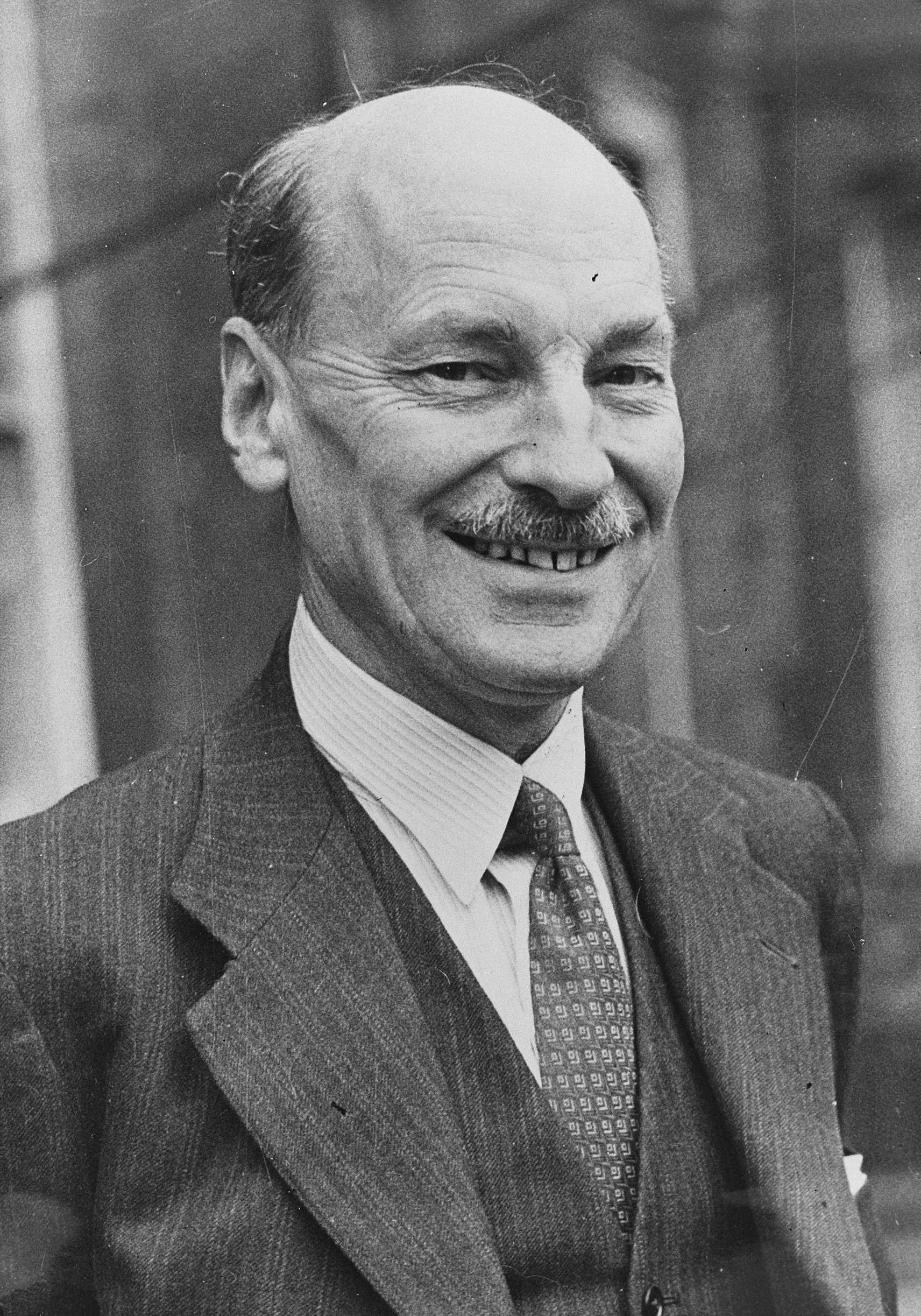Clement Attlee Frases famosas
Clement Attlee: Frases em inglês
Kenneth Harris, Attlee (Weidenfeld and Nicholson, London, 1982)
Self-penned limerick.
1960s
Letter to the Cabinet (January 1942), quoted in Paul Addison, The Road to 1945 (London: Pimlico, 1994), pp. 202-203
1940s
Message (2 September 1942), quoted in The Times (3 September 1942), p. 2.
War Cabinet
Broadcast (5 June 1945), quoted in The Times (6 June 1945), p. 2. The Conservatives had used some of their paper ration for the election on Hayek's book The Road to Serfdom.
Leader of the Opposition
Harold Wilson, Memoirs 1916-1964: The Making of a Prime Minister (Weidenfeld & Nicolson and Michael Joseph, London, 1986), p. 121.
Attributed
Speech http://hansard.millbanksystems.com/lords/1962/aug/02/britain-and-the-common-market in the House of Lords on the British application to join the Common Market (2 August 1962).
Later life
Peter Hennessy, The Prime Minister: The Office and its Holders since 1945 (Penguin, 2001), p. 173.
Attlee's speech to a group of anti-Common Market Labour backbench MPs in 1967, as recalled by Douglas Jay to Peter Hennessy in 1983. This was Attlee's last ever speech.
Attributed
“… the Peace Treaties must be scrapped … I stand for no more war and no more secret diplomacy.”
Extract from his 1922 election address, quoted in T.W. Walding (ed.), Who's Who in the New Parliament:Members and their pledges (Philip Gee, London, 1922), p. 35
1920s
Speech http://hansard.millbanksystems.com/commons/1922/nov/23/debate-on-the-address in the House of Commons (23 November 1922)
1920s
Speech https://api.parliament.uk/historic-hansard/commons/1938/oct/03/prime-ministers-statement#S5CV0339P0_19381003_HOC_14 in the House of Commons (3 October 1938) against the Munich Agreement.
1930s
Speech http://hansard.millbanksystems.com/lords/1962/nov/08/britain-and-the-common-market in the House of Lords on the British application to join the Common Market (8 November 1962).
1960s
Speech in Chesterfield (13 June 1941), quoted in The Times (14 June 1941), p. 2.
1940s
Speech to the Labour Party Conference in Scarborough (1 October 1951), quoted in The Times (2 October 1951), p. 4
Prime Minister
Harold Wilson, Memoirs 1916-1964: The Making of a Prime Minister (Weidenfeld & Nicolson and Michael Joseph, London, 1986), p. 128.
To Sydney Silverman, a Labour MP who had arrived back at Parliament with a beard. Echoes the motion "I move previous business" used at Parliamentary Labour Party meetings to end discussion on a topic.
Attributed
Harold Wilson, Memoirs 1916-1964: The Making of a Prime Minister (Weidenfeld & Nicolson and Michael Joseph, London, 1986), p. 122.
Explaining to John Parker why he was being sacked from the government in 1946.
Attributed
Broadcast in Singapore (6 September 1954), quoted in The Times (7 September 1954), p. 7
Leader of the Opposition
Speech to the Swedish Social Democratic Party congress in Stockholm (5 June 1952), quoted in The Times (6 June 1952), p. 5
Leader of the Opposition
“I would ask you all to be on your guard against the enemy within.”
There are those who would stop at nothing to injure our economy and our defence. The price of liberty is still eternal vigilance. I know what a fine part the trade unionists of this country have played in our recovery effort. When they are asked to take unofficial action, which may hurt this country, let them just consider carefully whether the motives of those who ask them to strike are really concerned with the interests of the workers.
Broadcast (30 July 1950), quoted in The Times (31 July 1950), p. 4
Prime Minister
Broadcast (24 October 1949), quoted in The Times (25 October 1949), p. 2
Prime Minister
Broadcast (24 October 1949), quoted in The Times (25 October 1949), p. 2
Prime Minister
Speech to the Chamber of Shipping of the United Kingdom at the Dorchester Hotel (13 October 1949), quoted in The Times (14 October 1949), p. 4
Prime Minister
Speech in Glasgow (10 April 1949), quoted in The Times (11 April 1949), p. 4
Prime Minister
Speech in Glasgow (10 April 1949), quoted in The Times (11 April 1949), p. 4
Prime Minister
Speech in Glasgow (10 April 1949), quoted in The Times (11 April 1949), p. 4
Prime Minister
Speech in Walthamstow (11 January 1949), quoted in The Times (12 January 1949), p. 4
Prime Minister
Broadcast (4 July 1948), quoted in The Times (5 July 1948), p. 6
Prime Minister
Prime Minister
Fonte: Speech to the Chamber of Shipping of the United Kingdom at the Dorchester Hotel (13 October 1949), quoted in The Times (14 October 1949), p. 4
Broadcast (3 January 1948), quoted in The Times (5 January 1948), p. 4
Prime Minister
Broadcast (10 August 1947), quoted in The Times (11 August 1947), p. 4
Prime Minister
Broadcast (18 March 1947), quoted in The Times (19 March 1947), p. 4
Prime Minister
